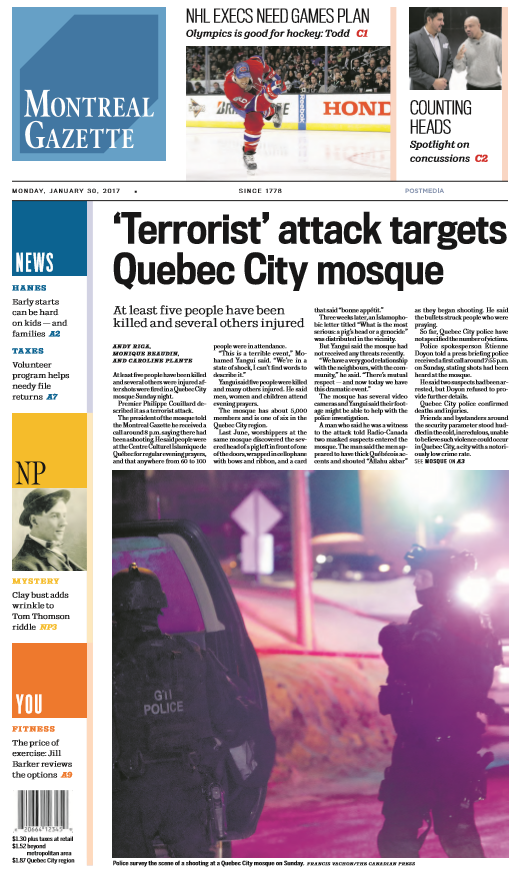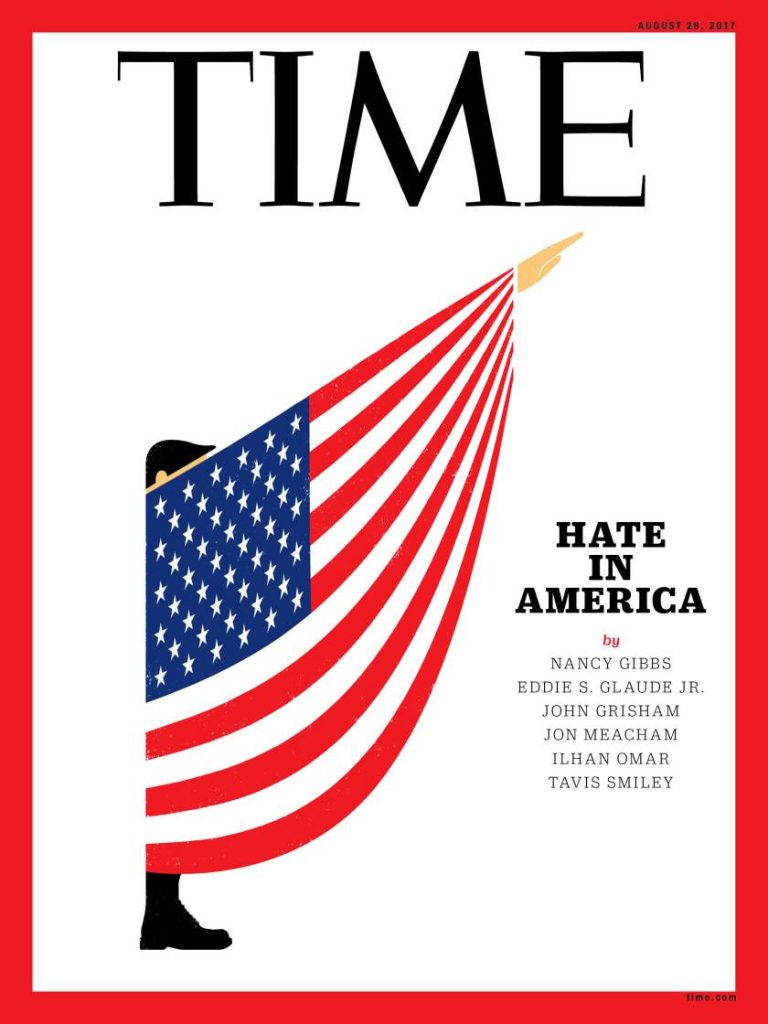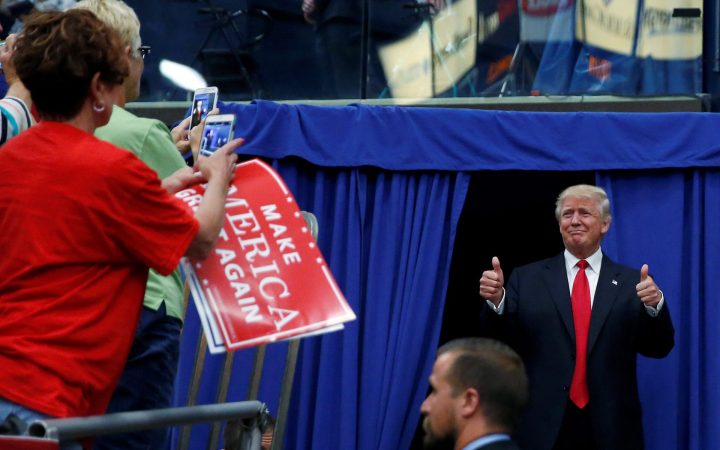The attack on the Grande Mosque of Quebec City occupied more space in the media than any other story since Influence Communication has been measuring this. The attack came in a particular context, between the inauguration of Trump and the historic performance of the Front National. It is in some way symptomatic of an era torn between diversity and turning inward, while the social networks encourage political polarization and the role of the fourth estate of traditional media seems increasingly contested. In short, an era when intolerance can manifest without shame.

The beginning of 2017 was marked by a great tragedy: the attack in Quebec. This historic news occupied an unprecedented space in Quebec media. With its Media Prominence Score (MPS) of 57.99%, it far exceeded the previous record established by the Lake Mégantic tragedy. The intolerance that motivated the Quebec attack set the tone for the rest of the year. Between the arrival of Trump in power, the presidential elections in France, the re-opening of NAFTA, Bill 62, the wave of asylum-seekers from the United States, the Charlottesville demonstration and the increasingly space given here to La Meute and similar organizations, rarely have we seen intolerance and hostility to the other occupy such space in the public arena. But there has also been some good in the story. In one sense, the #MeToo movement was about decreasing tolerance towards the sexual misconduct of certain powerful men, misconduct that often had a devastating impact on the victims.
The tumult in American and French politics was for Quebec the background on which this intolerance found its place. Under Donald Trump, this year international news had the greatest increase among the major topics dealt with in information media. It rose from 4.09% in 2016 to 6.17% in 2017, far ahead of the average of 2.06% since 2001.

One sector which perhaps shows more diversity than normal is sports. It remains dominant, buoyed up by the many specialized channels. Its MPS is stable, rising from 17.09% in 2016 to 17.23% in 2017. The coverage of the Montreal Canadiens in sports news, however, went through a deep decline. From 72.23% last year, it plunged to 57.48% this year: the lowest coverage of the Canadiens in sports news since 2008. Despite the drop, CH remains one of the most heavily covered teams in the entire NHL.
The greatest drop was in the technology sector. Declining by 35.66%, its MPS went from 5.02% to 3.23%. Could it be that after 10 years of the iPhone that the launch of special models created by Apple no longer creates the same buzz as before?
Among the less covered news stories, some topics enjoyed a modest recovery. This was notably true for the case of indigenous issues, which after a significant increase in their coverage between 2015 and 2016, enjoyed another, more modest, increase in 2017. The topic of poverty also saw a 33.33% increase in coverage; but it is far from time to declare any victory, as the MPS of this topic is still only 0.16 %.
Finally, the cannabis legislation means that federal politics is taking more news space this year, to reach 10.63%, while Canada-wide news dropped below average, to 0.60%.


